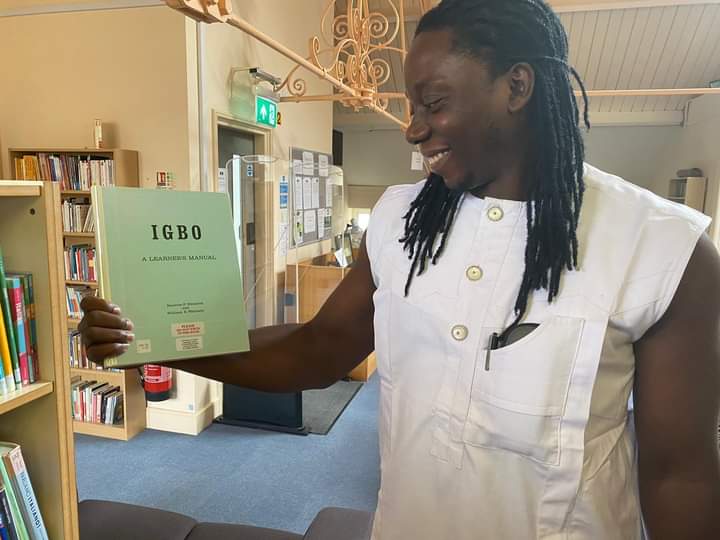One week ago, Oxford University in the UK appointed a Nigerian man, Emmanuel Ikechukwu Umeonyirioha, as its first Igbo language lecturer.
“This is the first time [the] Igbo language will be taught at the university. History has been made,” Umeonyirioha had said in a Facebook post. “I am so happy and grateful for this opportunity. I promise to make the Igbo language and culture known to the world.”
The Igbo language is one of Nigeria’s three major languages, spoken mainly by the Igbo people of southeastern Nigeria. The others are Hausa (dominant in northern Nigeria) and Yoruba (spoken by the Yoruba people of southwest Nigeria).
This became possible in account of the James Currey Society. This is the first time Igbo language will be taught at the university. History has been made.
I am so happy and grateful for this opportunity. I promise to make the Igbo language and culture known to the world.
— Emmanuel Ikechukwu Umeonyirioha (@lordibmbomb) February 18, 2022
Umeonyirioha is an Igbo, and his appointment has since generated reactions from Nigerians worldwide, especially those from the Igbo extraction. For experts, Umeonyirioha’s appointment will encourage the Igbo people to take pride in their language and culture.
“The appointment of a Nigerian as the first Igbo [language] lecturer at Oxford University helps in placing Igbo on the global map and will serve as motivation to the Igbos that their language is not something to be ashamed of after all,” Sopuruchi Aboh, linguistics and Igbo lecturer at the University of Nigeria, Nsukka, tells Prime Progress.
“Nigerians generally seem to rely so much on European endorsement. With the endorsement of Igbo by Oxford University as a language worthy to be studied, the pride of the Igbo people towards their language and culture will increase. On the other hand, it will help non-Igbos to know and learn about the Igbo language and culture.”
Aboh, a PhD Student at the Department of English and Communication, Hong Kong Polytechnic University, argued that the exclusion of the Igbo language in international programs often raises questions about the recognition of Igbo outside Nigeria.
It is official that I am the first official Igbo Language lecturer at the number one university in the world, the University of Oxford. Our induction happened today by Marion Sadoux, Head of Modern Language Programmes, University of Oxford Language Centre. pic.twitter.com/OqFDdHrUkJ
— Emmanuel Ikechukwu Umeonyirioha (@lordibmbomb) February 17, 2022
For instance, “The US Embassy through Fulbright Scholarship has Foreign Language Teaching Assistant Program (FLTA) where they recruit people to teach Hausa and Yoruba languages and cultures, [but] Igbo is the only major Nigerian language that was excluded. This raises questions about the recognition of Igbo outside Nigeria,” he explained.
“The assumption is that among the Hausas, Igbos and Yorubas, the Igbos often look down on their language, as can be seen in the number of parents who don’t speak Igbo to their children because of the belief that the Igbo language plays a little role in upward social mobility because of its low value in the ‘linguistic marketplace.'”
However, Aboh argued that the English Language, which is helping Nigerians connect and interact with the world, is at the expense of Nigerian indigenous languages and cultures. He blamed this on “the lack of a viable language policy in Nigeria and the non-implementation of language-in-education policy [which] has inhibited the growth of Nigerian languages and culture.”
He added that “the policy that rendered Nigerian languages optional in WAEC has resulted in the decline of students’ interest in the subjects.”






